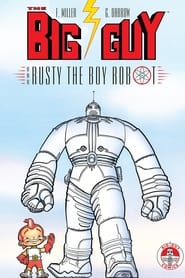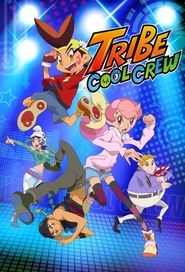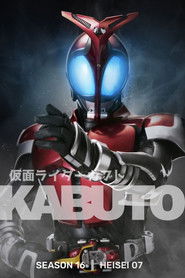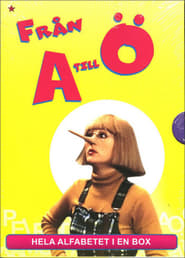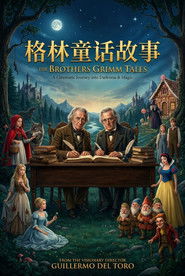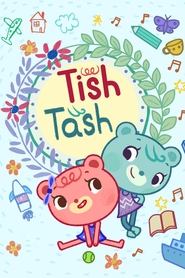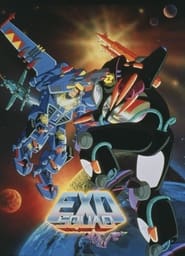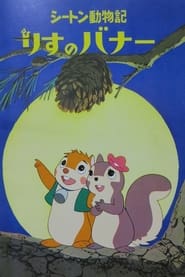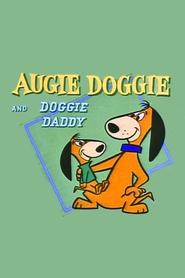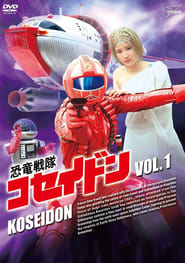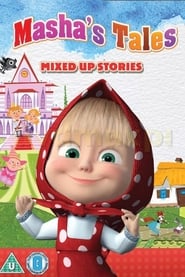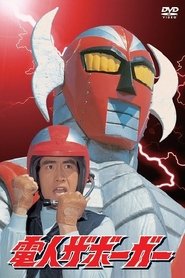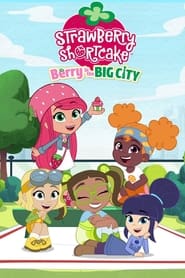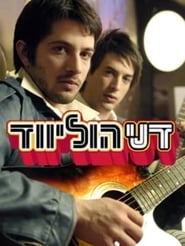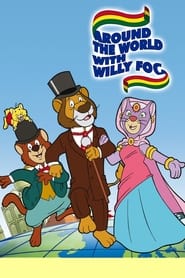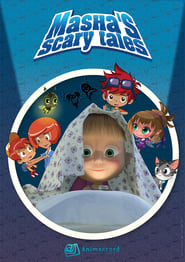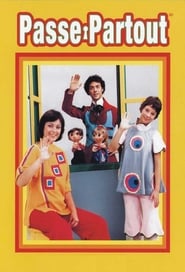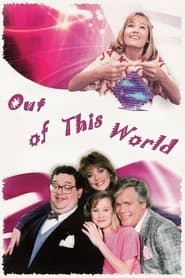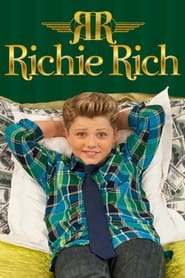Popular Kids TV Series on Pantaflix - Page 51
-
The Big Guy and Rusty the Boy Robot
1999
star 7.2"Big Guy" is an elite fighting robot, protecting New Tronic City from danger, whether from earth or from outer space. When the Big Guy is decommissioned, however, a smaller, childlike robot named Rusty is brought on to take its place. But it is clear that Rusty needs Big Guy's help, and it is up to the two of them to help keep the world a safer place. -
Tribe Cool Crew
2014
Tribe Cool Crew
2014
Haneru Tobitatsu is a middle school student who loves dancing! He can even dance to the rhythm of the chalkboard in class. One day, Haneru meets Kanon, a shy girl who is practicing at a secret dance place. The two learn the joy of dancing together and find happiness in their dance moves. -
Kamen Rider Kabuto
2006
Kamen Rider Kabuto
2006
star 6.7Seven years ago, a meteorite struck the Shibuya district of Tokyo. Alien lifeforms known as the Worms, emerged from the meteorite and became a threat to humanity. Ever since, Souji Tendou has been training while waiting for the Kabuto Zecter so that he may properly take up the mantle of Kamen Rider Kabuto. Making many enemies while at the same time meeting other Riders with mysterious origins, Tendou attempts to accomplish his goal at all costs: to destroy all Worms that threaten humanity. -
Från A till Ö
1974
Från A till Ö
1974
star 8.8Hedvig lives in a trailer in the woods and has a nose for learning new words. Helping her is Helge, an owl who lives on her roof. -
格林童话故事动画
2026
-
Tish Tash
2020
Tish Tash
2020
star 6Follow the adventures of a young bear called Tish, her bear family and her larger-than-life imaginary friend Tash, as they learn about the world around them. -
Exosquad
1993
Exosquad
1993
star 6.2Sometime in the 22nd century, humans have fully terraformed and colonized Venus and Mars. The Neosapiens, an artificially engineered race created to be slaves for the Terrans, have turned against their masters and formed the Neosapien Order/Empire/Commonwealth. Under the rule of the calculating Governor General Phaeton, the Neosapiens have launched an invasion of Earth and Venus. The ExoFleet, the Homeworlds' space navy (in particular, Able Squad, a group of Exo-Frame pilots led by Lieutenant J.T. Marsh), fight against the invasion in an interplanetary war to protect the Terrans. -
Bannertail: The Story of Gray Squirrel
1979
star 7.3The story of Banner, a young orphaned squirrel raised by a kindly mother cat, and his adventures in the forest. -
Augie Doggie and Doggie Daddy
1959
star 7.6Augie Doggie and Doggie Daddy are Hanna-Barbera cartoon characters who debuted on The Quick Draw McGraw Show and appeared in their own segment of that show. -
Dinosaur Corps Koseidon
1978
star 8The series follows the adventures of Go, a superhero leading a patrol who travel in time to defeat the Godmess Empire, an alien armada who, after landing on Earth 70 million years ago, has altered the course of time. Go's enemies include dinosaurs which are telepathically controlled by the aliens. He has the ability to stop time for 30 seconds. -
Masha's tales
2012
Masha's tales
2012
star 6Masha, it turns out, loves to tell stories! And she tells them, as would any child with creativity, a little in her own way - because children see the world, not as we, adults. -
Electroid Zaborger 7
1974
Electroid Zaborger 7
1974
star 10Denjin Zaborger, translated as Electroid Zaborger 7, was a Japanese tokusatsu television series that aired in 1974, produced by P Productions, it was their last Tokusatsu series of the 1970s. Denjin Zaborger stars Akira Yamaguchi as secret agent Yutaka Daimon. The robot Denjin Zaborger has no personality at all, its Akira Yamaguchi as the wild warrior Yutaka Daimon who gives the series its heart. A movie remake titled Karate-Robo Zaborgar was released in 2011. -
Strawberry Shortcake: Berry in the Big City
2021
star 7.3Aspiring baker Strawberry Shortcake arrives in Big Apple City to get her big break — and have flan-tastic adventures with her new berry besties! -
Danny Hollywood
2008
Danny Hollywood
2008
Can love cross the boundaries of time? Does it have the power to change the past? An original format that has quickly become a national sensation combining drama, suspense, wall - to - wall romance, time travel and lots of feel good music. -
Around the World with Willy Fog
1983
star 7.4Willy Fog is a British millionaire who bets that he will be able to go around the world in only eighty days. -
Masha's Spooky Stories
2014
star 5Masha explains why there's no need to be scared of things like monsters, the dark, going to a new school, thunder and other common childhood fears. -
Passe-Partout
1977
Passe-Partout
1977
Passe-Partout was a Quebec French language children's television program produced by Radio-Québec that was in production from 1977 to 1987. It aired on Radio-Québec as well as on Radio-Canada for thirty minutes, lasting on some networks until 1998. It incorporated both live actors and puppets although neither group interacted with the other. -
Out of This World
1987
Out of This World
1987
star 7.3Out Of This World is an American fantasy sitcom about a teenage girl who is half alien, which gives her unique supernatural powers. It first aired in syndication from September 17, 1987 and ended on May 25, 1991. During its first season, the series was originally part of NBC's Prime Time Begins at 7:30 campaign, in which the network's owned-and-operated stations would run first-run sitcoms in the 7:30-8 pm time slot to counterprogram competing stations' game shows, sitcom reruns and other offerings. Out of This World was rotated with the original series Marblehead Manor and She's the Sheriff, a syndicated revival of the 1983 sitcom We Got It Made, and a television adaptation of the play You Can't Take It With You. NBC ended the experiment after the 1987-88 season due to the low ratings put up by three of the series, with Out of This World being one of the two that was renewed. After its first season the series was largely moved to weekend time slots, where it remained until its cancellation following the fourth se -
Richie Rich
2015
Richie Rich
2015
star 5.7Richie Rich is a boy who turned vegetables into a clean energy source. As a result, Rich now has over a trillion dollars. Rich lives with his family in a mansion filled with toys, contraptions, and his best friends Darcy and Murray are always by his side, along with Irona, Richie's robot maid, his dad Cliff, who loves naps and is a bit dense, and his jealous sister Harper. Also, Darcy loves spending money and Murray doesn't want anything out of budget. -
Luz Clarita
1996
Luz Clarita
1996
star 6.8Luz Clarita is a Mexican telenovela produced by Televisa that aired on Canal de las Estrellas in 1996. The series, a remake of Andrea Celeste and Chispita, stars Verónica Merchant and César Évora, as well as child actors Daniela Luján and Ximena Sariñana. It has a dual storyline intended to attract both children and adults.
 Netflix
Netflix
 Amazon Prime Video
Amazon Prime Video
 Apple iTunes
Apple iTunes
 Apple TV Plus
Apple TV Plus
 Disney Plus
Disney Plus
 Google Play Movies
Google Play Movies
 Paramount Plus
Paramount Plus
 Hulu
Hulu
 HBO Max
HBO Max
 YouTube
YouTube
 fuboTV
fuboTV
 Peacock
Peacock
 Peacock Premium
Peacock Premium
 Amazon Video
Amazon Video
 The Roku Channel
The Roku Channel
 AMC+
AMC+
 Kocowa
Kocowa
 Hoopla
Hoopla
 The CW
The CW
 Vudu
Vudu
 Starz
Starz
 Showtime
Showtime
 PBS
PBS
 Pantaflix
Pantaflix
 FXNow
FXNow
 Tubi TV
Tubi TV
 Kanopy
Kanopy
 Comedy Central
Comedy Central
 Crunchyroll
Crunchyroll
 Microsoft Store
Microsoft Store
 Redbox
Redbox
 Sun Nxt
Sun Nxt
 ABC
ABC
 DIRECTV
DIRECTV
 Crackle
Crackle
 Fandor
Fandor
 Plex
Plex
